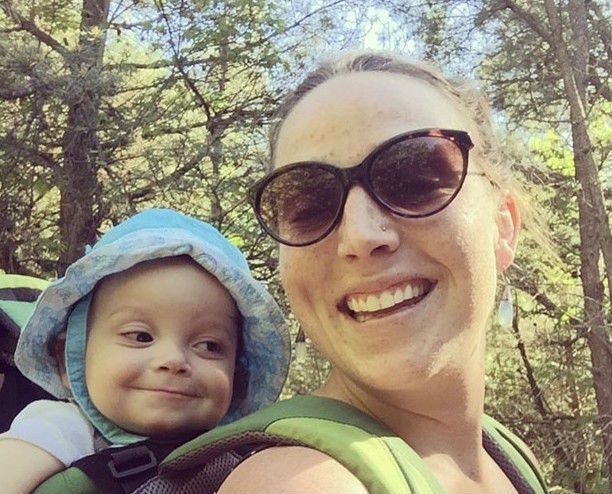Family's moving obituary for mum who died of opioid addiction goes viral
More than 72,000 Americans died of drug overdoses last year

Madelyn Linsenmeir was aged just 30 when she passed away earlier this month after suffering from opioid addiction - one of 72,000 Americans to die annually from drug overdoses.
She has left behind a toddler, two grieving parents, as well as a sister and partner, who for years “feared her addiction would claim her life”.
Yet the young woman is also being remembered as someone who passionately sought to overcome her addiction, especially after her son, Ayden, was born in 2014.
“It is impossible to capture a person in an obituary, and especially someone whose adult life was largely defined by drug addiction,” her family wrote in an obituary that has gone viral.
“To some, Maddie was just a junkie - when they saw her addiction, they stopped seeing her.” They added: “And what a loss for them. Because Maddie was hilarious, and warm, and fearless, and resilient. She could and would talk to anyone, and when you were in her company you wanted to stay.”
The family of the young woman, who was born in Burlington, Vermont, and where she spent much of her adult life, with spells in Florida and Colorado, said her first encounter with opioids, in the form of the prescription painkiller OxyContin, happened when she was a teenager.
“When she was 16, she moved with her parents from Vermont to Florida to attend a performing arts high school,” they wrote, explaining that the young woman was a “born performer and had a singing voice so beautiful it would stop people on the street”.
“Soon after she tried OxyContin for the first time at a high school party, and so began a relationship with opiates that would dominate the rest of her life.”
America’s battle against opiates is one of the stories frequently reported by local media because the scale of the problem is so pervasive and widespread. Yet, it only occasionally makes national headlines. Donald Trump campaigned for the White House vowing to tackle the issue, and earlier this year launched a three-pronged programme to try and address it.
“Failure is not an option. Addiction is not our future,” Mr Trump said in Manchester, New Hampshire, a state that has one of the highest rates of overdoses.
“We will not rest until the end, and I will tell you that this scourge of drug addiction will stop. It will stop.”
Mr Trump spoke as figures from the Centres for Disease Control showed drug overdoses killed about 72,000 Americans last year, a record number that represented an increase of 10 per cent from 2016. The scale of fatalities, which represents 200 deaths a day, is higher than that for vehicle accidents or gun deaths. Two-thirds of drug overdose deaths are reportedly linked to opioids.
His administration said it was seeking to reduce demand and overprescription of opioids, cut off the supply of illegal drugs and help people addicted to drugs by expanding access to treatment.

None of this helped Ms Linsenmeir.
“After having Ayden, Maddie tried harder and more relentlessly to stay sober than we have ever seen anyone try at anything. But she relapsed and ultimately lost custody of her son, a loss that was unbearable,” her family wrote.
They said during the last two years, the disease of addiction took her to places “of incredible darkness, and this darkness compounded on itself, as each unspeakable thing that happened to her and each horrible thing she did in the name of her disease exponentially increased her pain and shame”.
They said that for 12 days this summer, the young woman was home and during much of the time she was sober.
"For those 12 wonderful days, full of swimming and Disney movies and family dinners, we believed as we always did that she would overcome her disease and make the life for herself we knew she deserved,” her family wrote. “We believed this until the moment she took her last breath. But her addiction stalked her and stole her once again.”
They added: “Though we would have paid any ransom to have her back, any price in the world, this disease would not let her go until she was gone.”
A memorial service for the young woman is to be held later this month at the First Unitarian Universalist Society sanctuary in Burlington. The family has asked that in place of flowers, people may consider donating to the Turning Point Centre, a non-profit group based in the city which works with people to overcome addiction and where Ms Linsenmeir spent some time.
Join our commenting forum
Join thought-provoking conversations, follow other Independent readers and see their replies
Comments
Bookmark popover
Removed from bookmarks